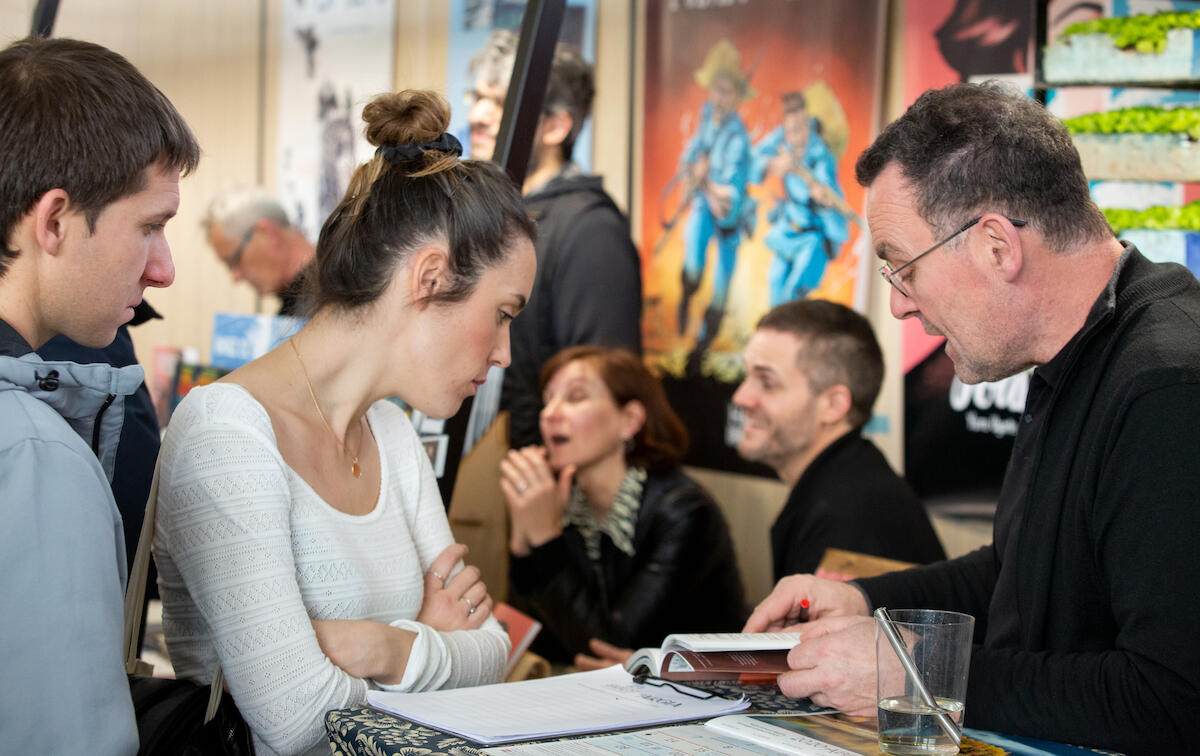
- In this article we bring you the products of the ARGIA stand. Of course, telematically. If you want to find us physically, you'll meet the Landako information point. If you are looking for clothing and clothing, head to the Inor ez ilegala area that will be on the porch of Andra Mari, where we will have the second place.

2023 has been a very rich year in the ARGIA products section. In the book section there are four innovations: A horse in the escape camp (Koldo Izagirre), on the Precarious Planet (Pello Zubiria), on the Rumarra (Josebe Blanco) and Ño! comic book (Miren Artetxe, Eli Pagola and Maitane Gartziandia). Three games have also been published: Otu, Hizki piztu and Jarioka.
At the point of sale of ARGIA you will also find the agenda and calendar of next year: the taco of the ephemerides, the Luna and Plants agenda and the Moon calendar.
Books: keys to understanding current affairs
Memory is necessary to understand current society, and a choice, in favor of collective memory, is important. Koldo Izagirre has compiled some of the chronicles that the Basque press brought between 1869 and 2000 in his book A horse in the field of flight. The author himself and the editor Gorka Bereziartua highlighted in the presentation act last April that they are "jewels in a beautiful assortment" and claimed the literary value of journalism. Anyone who wishes further explanations will find them in this interview with Izagirre.
A book closely related to the environment in the different cavities of journalism in Basque: Pello Zubiria, from the substantial articles published for twenty years in the Net section Near ARGIA magazine, is a collection that tells the crises and resistances of many places in the world, passing through the screening of almost 1,000 articles. The foreword has been written by Emilio López Adan Beltza, who says: "Zubiria generally investigates the violence and cynicism of the rich and powerful. At the same time, it clearly shows us their empathy with younger people to report what they suffer or to remember their initiatives." In addition to the book, Zubiria talked about the foundations of journalism in this interview.
The great fruit of the Bizi Baratze project is the Rumarrean book, written by Pastor Josebe Blanco. White talks about "relationships," "diverse relationships," with sheep, of course, with people, with climate urgency, with green painted capitalism, with selviculture ... For more details, there is nothing more than going to this elegant interview by Estitxu Eizagirre.
ARGIA also wants to start training in the graphic novel, and to reach the Durango Fair, it has made a nice journey among the Basque public! Comics. Focusing on the experiences of Bertsolaris women, Miren Artetxe, Eli Pagola and Maitane Gartziandia have collected ten scenes that can happen around a bertsos session. Why have they crossed Bertsolaris with women, what have they missed? Here are the explanations in an interview with all three.
Games: three games of cards for family practice
Both FAO and Jarioka serve not only to play with children and the family, but also to learn Basque and to train orality. Both are card games and the third, Hizki-piztu.
OTU is aimed at people over 5 years of age. It's about creating stories to work imagination. Each letter contains an image with which the idea is to create stories, alternately.
For leaks, it's designed for people over 10. It's about working communicative ability, speed and knowledge. In groups of at least two people, the goal is for the group to guess as many hidden words as possible, avoiding prohibited words, before the time spent runs out.
Finally, Hizki piztu is a game based on the fauna of the Basque Country. With large and small cards, different modes of play are proposed, always with the same objective: to be trained in reading and writing, accompanying the fauna of the Basque Country. There are no elephants here, but there are carboneros. The game is modernized: the cards have a QR code to bring them to this website. The video helps to work the orality of the letters, through the audiovisual of stories, songs, poems, bertsos, stories, trabalenguas, expressions...
When will the authors be at the ARGIA table?
Jakoba Errekondo: everyday.
Garbiñe Larrea: everyday.
Authors: 6 December.
Josebe Blanco: 7 December afternoon and 9 December.
Koldo Izagirre: 9 December.
Pello Zubiria: 9 December.
Eli Pagola and Maitane Gartziandia: 10 December.